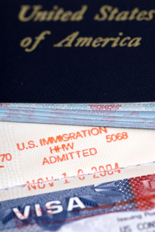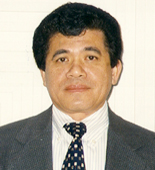|
US Immigration News
|
|
LEGAL NOTES / 26 APRIL 2007 |
|
By REUBEN S. SEGURITAN |
|
|
|
Update on H-2B Temporary Workers
|
 |
|
On
April 20, 2007, the Department of Labor issued new regulations
concerning the processing of an H-2B petition. The H-2B visa
category is for non-agricultural foreign workers who enter the
US on a temporary basis.
There are two important aspects to the H-2B category. First, the
employment of the foreign worker must be temporary in nature. This
means the job itself must be “one-time, peak load, seasonal or
intermittent. The other important aspect of the H-2B category is
that there should be no available US qualified worker for the job
and that the job will not adversely affect the working conditions of
similarly employed US workers. |
|
|
|
|
|
Considering the visa retrogression and the critical shortage at
present, the H-2B can be used for the recruitment of workers in
hotels, parks, casinos, country clubs and other establishments that
need temporary help.
|
|
|
Temporary Nature of the Job
The Regulation explained the standards for determining the temporary
nature of the job opportunity. It emphasized that what is
controlling is the nature of the employer’s need, and not the nature
of the duties. Thus, the question does not turn on whether the job
is permanent or temporary. The Regulation added that only full-time
employment, not part-time employment, can be certified.
The Regulation emphasized that the period of the H-2B petitioner’s
need must be a year
or less. In the event of “unforeseen circumstances” that creates a
need of more than a year, a new temporary labor certification
application must be filed. A recurring “seasonal” or “peakload” need
that exceeds 10 months does not qualify either.
Lastly, the Regulation further requires the employer’s need for
temporary non-agricultural services or labor must meet the following
standards: (a) a one-time occurrence; (b) a seasonal need; (c) a
peakload need; and (d) an intermittent need.
|
|
|
SPONSORED LINKS |
Labor Certification Requirement
To conform to the second aspect of the H-2B category
mentioned above, the petitioner must file a labor
certification application with the local State Workforce
Agency (SWA) on two (2) originals of ETA Form 750 Part
A.
This ETA form could be used for more than one job
opening and for the same rate of pay. The certification
pertains to the employer (not the alien beneficiary/ies)
and may not be transferred to another employer. |
|
|
|
According to the Regulation, if the application includes worksite
locations within a Metropolitan Statistical Area covering several
SWAs, the employer may submit a single application to the SWA where
the employment will begin.
After review, the SWA will forward the ETA Form 750 Part A to the
appropriate National Processing Center (NPC) where a final
determination will be made.
The labor certification is issued when the DOL finds that there are
no US qualified workers for the job and that similarly situated US
workers will not be adversely affected by the hiring of foreign
workers. Otherwise, the DOL issues a denial.
Technically, a labor certification denial does not bar the filing of
the H-2B petition because the decision of the SWA on the labor
certification request is merely advisory. The USCIS, however,
generally heeds the DOL recommendation.
|
REUBEN S. SEGURITAN
 has been practicing law for over 30 years and is included in the Marquis Who’s Who in American Law. A former law editor and professor, he is also the author of a book on immigrant experiences. He has spoken in international and national conventions and has been interviewed on radio and television, including the ABC Nightly News. He has participated in meetings with White House staff and the Immigration Commissioner to discuss immigration reforms. For his community service and advocacy, he has received numerous awards in the U.S. and abroad. For more information, you may log on to his website at www.seguritan.com or call (212) 695-5281
has been practicing law for over 30 years and is included in the Marquis Who’s Who in American Law. A former law editor and professor, he is also the author of a book on immigrant experiences. He has spoken in international and national conventions and has been interviewed on radio and television, including the ABC Nightly News. He has participated in meetings with White House staff and the Immigration Commissioner to discuss immigration reforms. For his community service and advocacy, he has received numerous awards in the U.S. and abroad. For more information, you may log on to his website at www.seguritan.com or call (212) 695-5281 |
|
|
|
|
|
|
| |
|
|
|
Terms of Use. Privacy Policy. Disclaimer. |
| |
|
|
| |
|
|
| |
|
|
|
 |
Filipina and Filipino for friendship, dating, chat, romance on Filipino Friend Finder |
|
|
|
|
|
|
| |
| |
 |
| |
| |
| |
| |
| |
| |
| |
| |
| |
| |
| |
| |
|